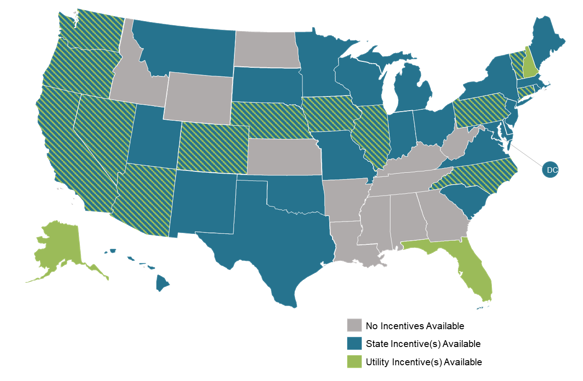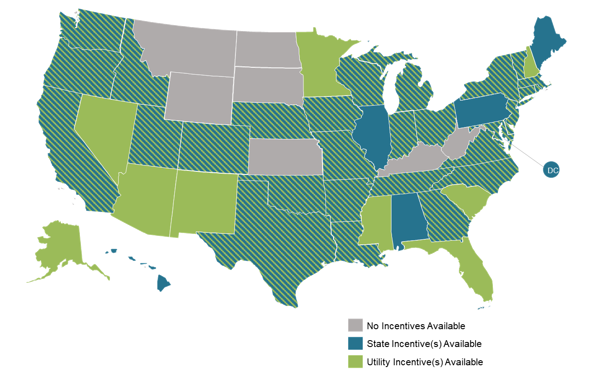DSIRE Adds Electric Vehicle and Charging Station Incentive Programs to Database
DSIRE Adds Electric Vehicle and Charging Station Incentive Programs to Database
Raleigh, NC – (August 24, 2021) The NC Clean Energy Technology Center (NCCETC) announced the addition of incentive programs for electric vehicles and charging infrastructure to the Database of State Incentives for Renewables and Efficiency (DSIRE).
DSIRE now includes state and utility incentives for the following technology types:
- Passenger Electric Vehicles
- Plug-In Hybrid Electric Vehicles
- Zero-Emission Vehicles
- Electric School Buses and Electric Transit Buses
- Medium- and Heavy-Duty Electric Vehicles
- Neighborhood Electric Vehicles
- Off-Road Electric Vehicles
- Level 2 Electric Vehicle Service Equipment
- Direct Current (DC) Fast Charging Equipment
- Make-Ready Charging Equipment
“Adding electric vehicles and charging equipment to DSIRE is the largest expansion of its scope since we added energy efficiency technologies in 2006,” said Brian Lips, DSIRE Project Manager at NCCETC. “The 250+ additional incentives will maintain DSIRE’s status as the one-stop-shop for reliable information about policies and incentives for clean energy technologies.”
State and Utility Incentives for Electric Vehicles

DSIRE now includes over 250 incentive programs for the purchase of electric vehicles and associated charging infrastructure. There are currently state or utility incentives available in 38 states plus DC for electric vehicles, plug-in hybrid vehicles, and electric buses. Incentives for electric vehicle charging infrastructure are currently available in 43 states plus DC.
State and Utility Incentives for Electric Vehicle Charging Infrastructure

“With the rapid growth in the electric vehicle market and the increased attention from the federal and state governments on accelerating deployment of EV infrastructure and vehicles, we believe that this was a critical expansion of the DSIRE portfolio. Furthermore, we believe the EV market is likely to increasingly converge with the rest of the clean energy space as ‘smart’ buildings, energy storage, and vehicle-to-grid (V2G) technologies are folded together under the banner of grid modernization. Policymakers are exploring new regulatory approaches and incentives to get these technologies past early adoption and into mainstream use. We at NCCETC plan to make sure DSIRE is ready to help homeowners, businesses, policymakers, and others that need to navigate this rapidly changing policy landscape, says Steve Kalland, Executive Director of the NCCETC.
Summary maps showing the availability of electric vehicle and charging incentives are now available here. NCCETC plans to continue adding policy content related electric vehicles and charging infrastructure to DSIRE, including electric vehicle sales or adoption goals, state procurement targets, and charging-enabled parking requirements.
ABOUT THE N.C. CLEAN ENERGY TECHNOLOGY CENTER
The N.C. Clean Energy Technology Center, as part of the College of Engineering at North Carolina State University, advances a sustainable energy economy by educating, demonstrating and providing support for clean energy technologies, practices and policies. It serves as a resource for innovative, sustainable energy technologies through technology demonstration, technical assistance, outreach and training. For more information about the Center, visit: http://www.nccleantech.